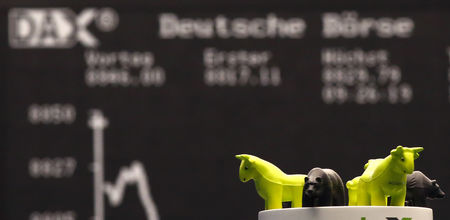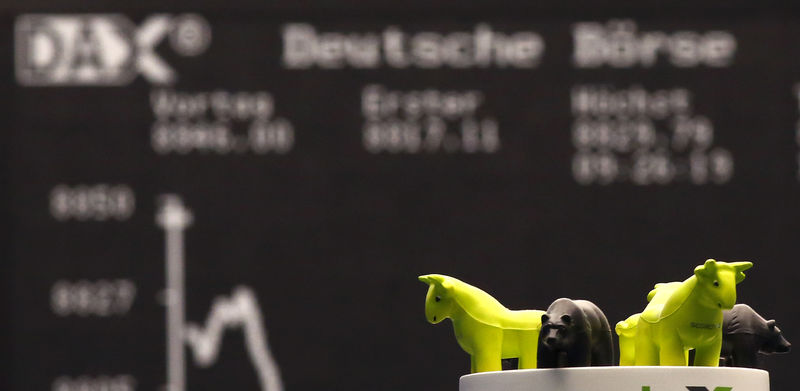
Investing.com – European stock markets edged lower Friday, as investors digested the latest ECB interest rate cut as well as growth data from China, the world’s second-largest economy.
At 03:40 ET (08:40 GMT), the in Germany traded 0.1% lower, the in France fell 0.1% and the in the U.K. dropped 0.4%.
ECB cuts interest rates again
The cut interest rates on Thursday by 25 basis points to 3.25%, following on from September’s move – the first back-to-back rate cut since 2011.
Although this reduction was widely expected, the quickening pace of rate cuts points to a worsening economic outlook amid signs that inflation is increasingly under control.
There was some good economic news in Europe Friday, after data showed that rose 0.3% on the month in September, annual growth of 3.9%.
This compares with expectations for a monthly fall of 0.3%, and a year-on-year gain of 3.2%.
Additionally, data showed the Chinese economy grew 4.6% in the third quarter, largely as expected although the economy’s pace of growth remained below Beijing’s annual target.
This brought year-to-date GDP growth to 4.8%, still below Beijing’s 5% annual target.
Volvo’s Q3 disappoints
In the corporate sector, AB Volvo (OTC:) stock fell 2% after the Swedish truck maker reported a bigger drop than expected in third-quarter adjusted operating profit and said demand continued to normalise in most of its markets following a post-pandemic spike.
Across the pond, Netflix (NASDAQ:) will be in the spotlight after the streaming giant picked up 5.1 million streaming subscribers in the third quarter, topping expectations by more than 1 million, and said it expected higher customer growth around the holidays when Korean drama “Squid Game” returns.
Crude on track for weekly losses
Oil prices edged higher Friday, but remained on track for their biggest weekly loss in more than a month on concerns about demand.
By 03:05 ET, the contract climbed 0.4% to $74.73 per barrel, while futures (WTI) traded 0.5% higher at $71.00 per barrel.
Both benchmarks settled higher on Thursday for the first time in five sessions after data showed that official US fell last week, but are still set to fall about 6% this week, their biggest weekly decline since Sept. 2.
Both and the cut their forecasts for global oil demand earlier this week, adding to ongoing concerns about demand growth, largely centered around China.


